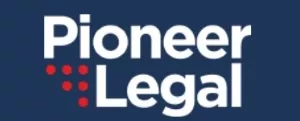Pioneer Legal are most popular:
- within Food, Drugs, Healthcare and Life Sciences topic(s)
Background
- In the case, vide judgment dated November 29, 2023, the Delhi High Court ("DHC") held that employees cannot be penalized for employers' failure to deposit tax deducted at source ("TDS").
Facts
- The facts of the present case related to an airline pilot by the name of Mr. Chintan Bindra ("Chintan") employed by Kingfisher Airlines Limited ("Kingfisher") in the rank of a captain. Chintan had filed his income tax return for the assessment Year ("AY") 2009-2010 on March 31, 2010, declaring a gross total income of INR 39,60,051. The income tax payable against his salary was deducted at source by Kingfisher, but it was not reflected in the tax credit statement, i.e., form 26AS ("Form 26AS").
- Chintan had claimed a TDS credit and a refund but on March 21, 2011, the Deputy Commissioner of Income Tax ("DC-IT") had issued an intimation under Section 143(1) of the Income Tax Act, 1961, ("IT Act") rejecting the TDS credit claimed by Chintan. Instead, a demand of INR 15,36,020 towards tax and interest was raised. Similarly for AY 2011 2012 and AY 2012-2013, Kingfisher had deducted TDS from Chintans' income. Consequently, when Chintan filed his income tax return declaring his gross total income and claiming TDS, DC-IT issued an intimation under Section 143(1) of the IT Act, rejecting the TDS credit claim and raising a demand of towards tax and interest, and adjusting a refund.
- After repeated adjustment of refunds, Chintan filed an application seeking a stay on the demands, as despite repeated requests, DC-IT refused to cancel the demands or give TDS credit, DHC considered whether recovery could be made against Chintan, given that his employer, i.e., Kingfisher, had failed to deposit the deducted tax.
- The issue for consideration before DHC was if any recovery towards the outstanding tax demand could be affected against Chintan despite the fact that the tax payable on Chintans' salary was being regularly deducted at source by Kingfisher which did not deposit the deducted tax with the revenue?
Analysis
- DHC noted that Chintan was being paid salary after deduction of income tax at source, but Kingfisher did not deposit the same with the revenue and despite repeated communications from Chintan, the said demands were not withdrawn by DC-IT.
- DHC relied on Sanjay Sudan v. Assistant Commissioner of Income Tax [Sanjay Sudan v. Asst. CIT, 2023 SCC OnLine Del 1160], and opined that once Chintan accepted salary after TDS, he had no control over it, and it was the Kingfishers' duty to deposit the deducted tax with the revenue. DHC emphasized that Chintan should not be penalized for the Kingfishers' failure, and the revenue could pursue Kingfisher for tax recovery.
- As a result, DHC set aside the intimations/communications for AY 2009-10, 2011-12, and 2012-13, restraining the respondents from recovery proceedings. DHC also directed DC-IT to refund any amount wrongly adjusted against the demands.
Originally published 03 April 2024
The content of this article is intended to provide a general guide to the subject matter. Specialist advice should be sought about your specific circumstances.




